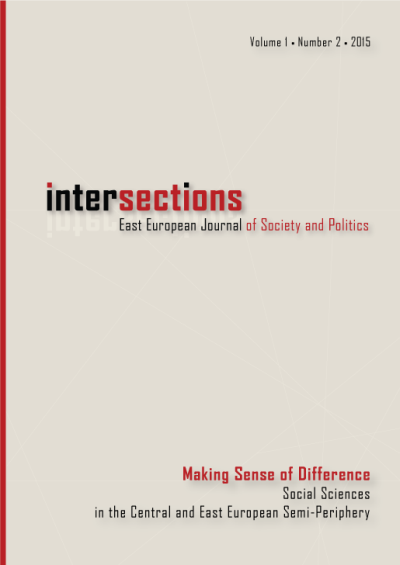The Contemporary Relevance of István Bibó’s Theoretical Framework for Analyzing and Settling Territorial and State-Formation Conflicts
The Contemporary Relevance of István Bibó’s Theoretical Framework for Analyzing and Settling Territorial and State-Formation Conflicts
Author(s): András SchweitzerSubject(s): Social Sciences, Political Theory, Inter-Ethnic Relations, Ethnic Minorities Studies
Published by: MTA Társadalomtudományi Kutatóközpont Kisebbsegkutató Intézet
Keywords: István Bibó; ethnic conflicts; international relations; nationalism; self-determination
Summary/Abstract: International policy makers, even those with a genuine resolve for peacemaking, often shy away from getting involved with political conflicts where the principle of self-determination clashes with that of the territorial integrity of a state, or devise ad hoc plans that lack the potential to become a lasting solution. In the Cold War context of the 1970s social scientist István Bibó observed and explained this phenomenon and suggested a mechanism to correct it. His idea was to set up a special international court for impartial political arbitration and to solve “territorial and state-formation conflicts” by the principle of national self-determination. He proposed to recognize the global territorial status quo as the “constitution of international relations” but to “amend it” by fostering ethnic-linguistic separation in the special case of irreconcilable conflicts. Viewed from today Bibó’s case studies of the Arab-Israeli conflict and the Cyprus question have shown remarkable foresight and several of his specific suggestions have become core elements in road maps for solving them. Additionally, in contemporary political and scientific discourses on other ethnic-territorial conflicts, opinions seem to shift in line with his views as experiences of the last decades seem to corroborate the validity of his analytical framework and general policy recommendations.
Journal: Intersections. East European Journal of Society and Politics
- Issue Year: 1/2015
- Issue No: 2
- Page Range: 146-167
- Page Count: 22
- Language: English

